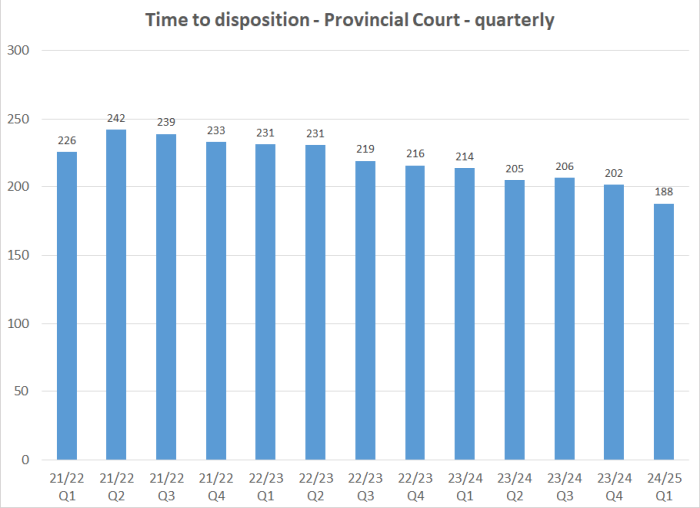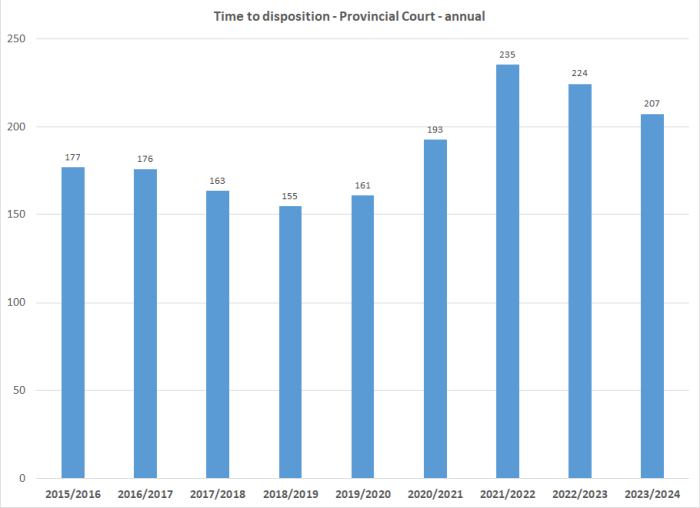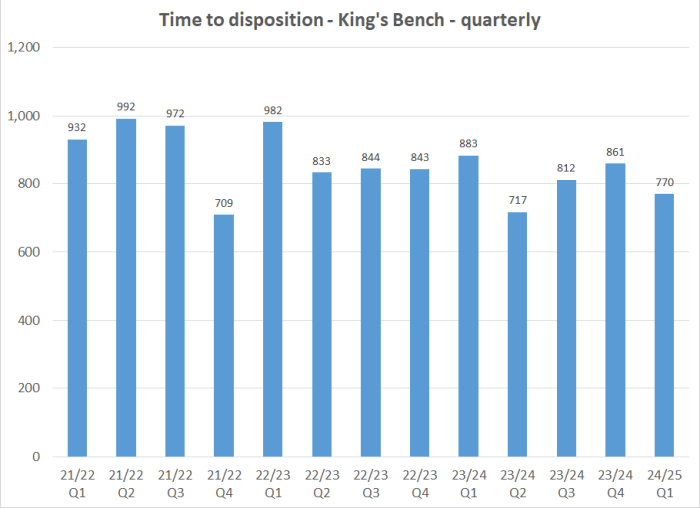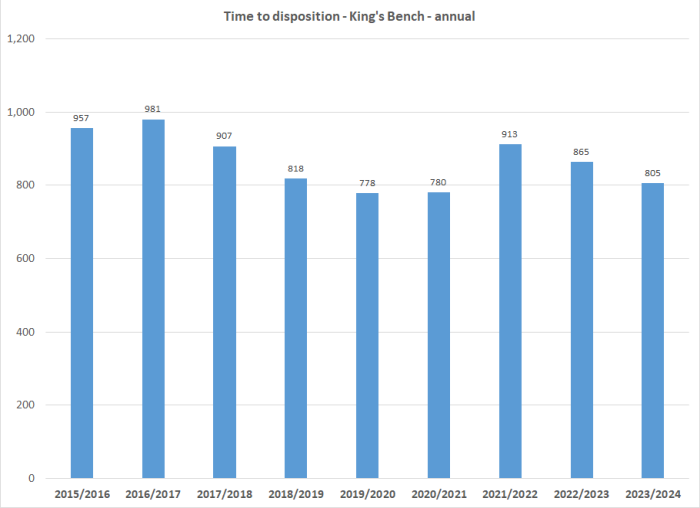Time to Disposition
One of the primary objectives of the Department is to improve timely access to justice in the provincial criminal justice system for victims and communities, and for the accused's right to trial within a reasonable time. Measuring time to disposition (TTD) allows the Department to understand how long it takes for cases to move through the provincial justice system.
TTD is calculated by counting the number of days between the offender’s first appearance date for a given charge, and the date it is disposed. The most common reasons for disposition are when an accused pleads guilty, when the Crown stays the charge, or when a verdict is reached in a trial.

Provincial Court
Approximately 99% of criminal cases are dealt with from start to finish by the Provincial Court of Manitoba. It should be noted that time that matters spend at warrant status (where the accused has stopped appearing in court) is excluded from this calculation. Also, matters whose final disposition in Provincial Court is a Committal to the Court of King's Bench are excluded from this calculation.

Provincial Court
Approximately 99% of criminal cases are dealt with from start to finish by the Provincial Court of Manitoba. It should be noted that time that matters spend at warrant status (where the accused has stopped appearing in court) is excluded from this calculation. Also, matters whose final disposition in Provincial Court is a Committal to the Court of King's Bench are excluded from this calculation.

King's Bench
The most serious criminal cases are heard in the Court of King's Bench. This includes first or second degree murder cases and all matters heard by a jury for example. These matters represent approximately 1% of the cases that enter the criminal justice system. The Department is focused on ensuring that serious criminal cases are prosecuted efficiently and effectively. The TTD statistics reported here include the time the cases have been in Provincial Court prior to committal from a preliminary inquiry or other process to the Court of King's Bench. The average time to disposition will fluctuate more than the Provincial Court average, and short term changes may not be as impactful due to the smaller number of cases.

King's Bench
The most serious criminal cases are heard in the Court of King's Bench. This includes first or second degree murder cases and all matters heard by a jury for example. These matters represent approximately 1% of the cases that enter the criminal justice system. The Department is focused on ensuring that serious criminal cases are prosecuted efficiently and effectively. The TTD statistics reported here include the time the cases have been in Provincial Court prior to committal from a preliminary inquiry or other process to the Court of King's Bench. The average time to disposition will fluctuate more than the Provincial Court average, and short term changes may not be as impactful due to the smaller number of cases.

